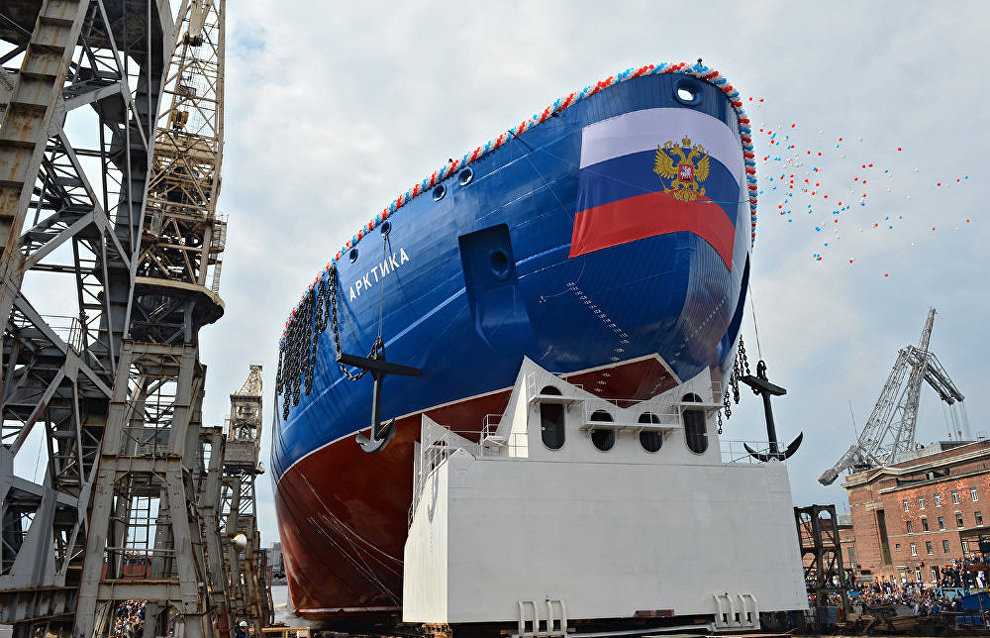Atomflot: Russia needs to build more icebreakers due to increased Arctic shipping
Russia needs to build more nuclear-powered icebreakers to keep up with the increased cargo traffic in the Arctic, Stanislav Golovinsky, Deputy General Director for Development and head the Atomflot branch in Moscow, said at the Arctic-2017 international conference.
According to the expert, there are four nuclear-powered icebreakers operating in the region, but due to the implementation of projects in the Arctic, an icebreaker fleet is needed.
"The number of icebreakers should and will increase. Three double-draft nuclear-powered icebreakers — Arktika (Arctic), Sibir (Siberia) and Ural — are being built. But it will be necessary to build a fourth and the fifth icebreaker and the flagship icebreaker," Golovinsky said.
According to Dmitry Fishkin, Deputy Director of the Department for the Development of Interregional and Cross-Border Cooperation of the Economic Development Ministry, many ambitious projects have been launched in the Arctic, which will fully be implemented by the 2020s, so there may be a lack of icebreakers by 2021 due to their withdrawal.
Golovinsky noted that the service life of icebreakers can be extended. "Two indicators are important for icebreakers — the capacity of a nuclear power unit and service life. Icebreakers were designed to work 100,000 hours over the course of 26 years. But the Arktika icebreaker has operated 177,000 hours over 31 years. Due to the current lack of icebreakers, we are working on a program to extend the capacity up to 250,000 hours," he said.
However, according to Golovinsky, extending the icebreaker fleet life is only possible up to a certain limit. "So, we will build icebreakers and withdraw the existing ones as required, when there is a complete replacement," he said.
The second international conference, Arctic: Shelf Projects and Sustainable Development of the Regions (The Arctic-2017), is being held on February 16-17.
The conference is devoted to the key issues of social and economic development of the Arctic and Russian Far East; development of the Russian sea shelf; the legislative foundation for the implementation of shelf projects; and world experience in exploration and drilling in the Arctic. The priority topics on the agenda are environmental safety in the region, energy and utilities in the Arctic, the development of telecommunications infrastructure in the Arctic, transport and logistical assistance to Arctic projects, promotion of a favorable investment climate, and the development of international cooperation.
